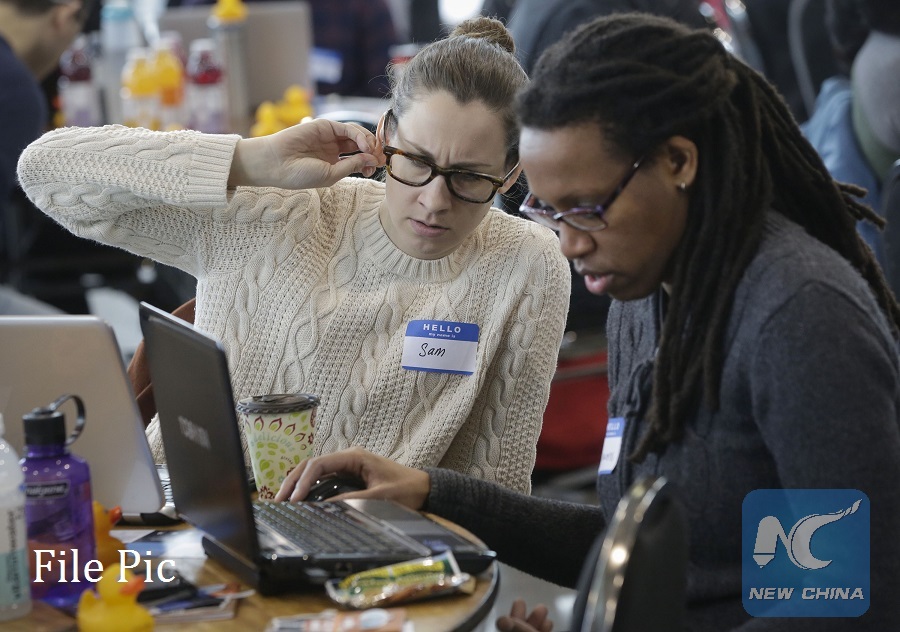
People learn how to code during the 4th annual "HTML500" event held in Vancouver, Canada, March 11, 2017. (Xinhua/Liang Sen)
LONDON, Sept. 6 (Xinhua) -- Universities in Britain have faced hundreds of cyber attacks in the past year targeting sensitive scientific, engineering and medical advances including research into missiles, it was revealed Tuesday.
A report in the Times newspaper said in London that cyber security breached at institutions including Oxford and University College London (UCL) have doubled in the past two years to 1,152.
The Times used freedom of information requests to gain its data revealing that criminals are launching hundreds of successful cyber attacks on British universities each year.
The report cited experts saying that criminal gangs were finding ways through often weak defenses in an attempt to steal sensitive information on behalf of foreign states or to sell it on to them.
The report added that research into missiles, stealth fabric, used to help to disguise military vehicles and weapons, and energy including new fuels and batteries is thought to be among the targets. Universities declined to reveal which research had been compromised, the Times added.
It said hackers have also sought sensitive medical records held at university hospitals.
Professor Carsten Maple, director of cyber security research at Warwick University and chairman of Britain's council of professors and heads of computing, told the Times that cyber defenses at universities needed to be urgently tightened.
"Universities drive forward a lot of the research and development in the UK. Intellectual property takes years of know-how and costs a lot. If someone can get that very quickly, that's good for them," Maple told the Times, adding, "Certainly somebody might attack a university and then provide that information to a nation state."
According to the Times, Maple raised concerns over the growing threat to national infrastructure.
"What's also increasing are cyber-physical attacks where our buildings are affected. Heating, ventilation and management systems are connected to the internet. That's especially worrying for places like the health service," Maple added.
The report also quoted Dave Palmer, the director of technology at Darktrace, a cyber security company created by mathematicians from Cambridge University, saying that hackers were striving to get hold of cutting-edge research into advanced weaponry or energy.
He said criminal groups were also trying to steal personal data "wherever it exists" for money laundering or identity theft, especially using non-anonymized records used for research at universities.
The University of Oxford said there had been 515 cases of unauthorized access to its accounts or machines last year and UCL said that it experienced 57 successful attacks in 2016-17.
Queen Mary, University of London, said that it had blocked 38.75 million attacks over the period.
The report said targets for cyber attacks included 3D-printed military aircraft and opto-electronic devices at Southampton University, and high-energy density supercapacitors (superfast battery rechargers) at the universities of Surrey and Bristol.

